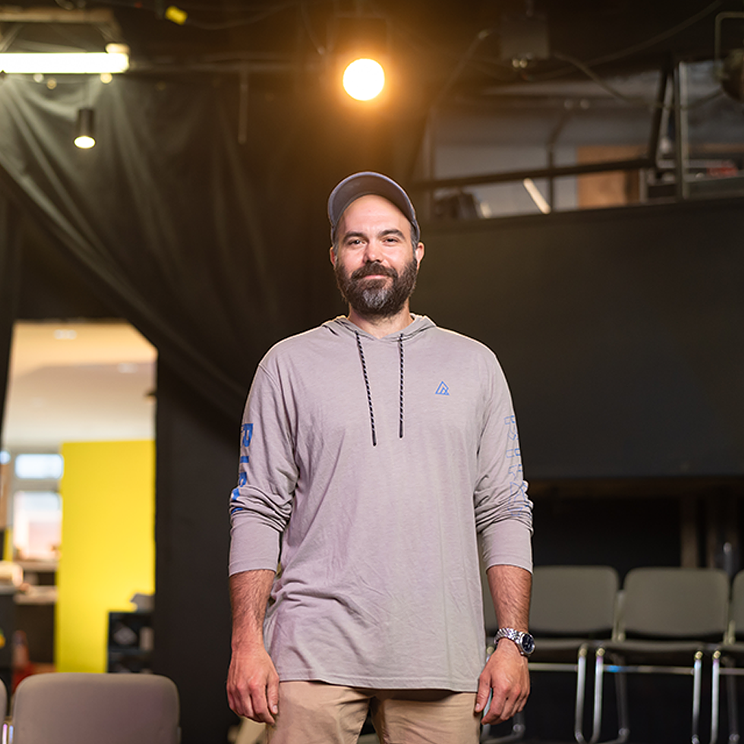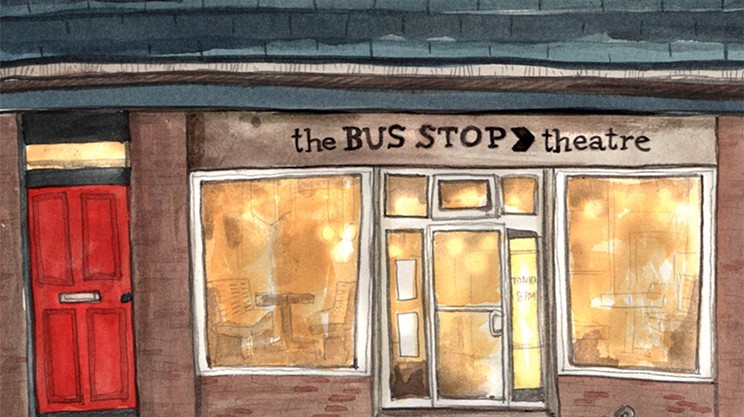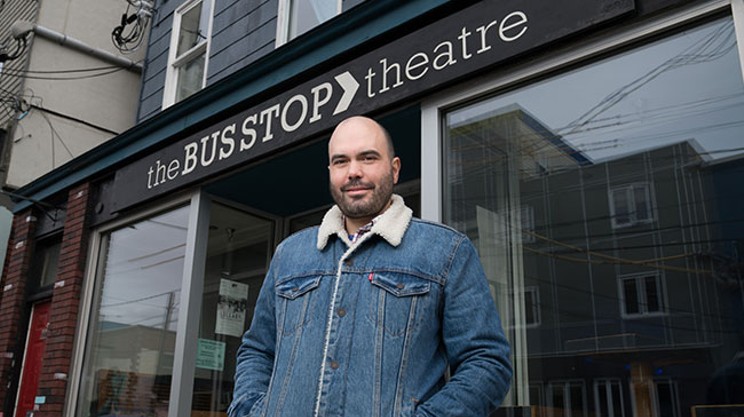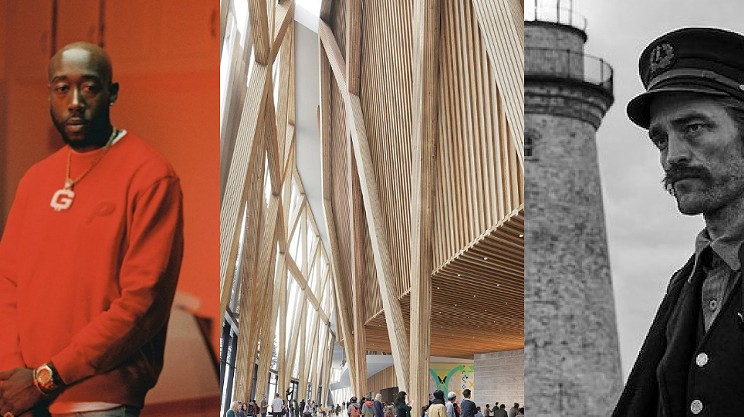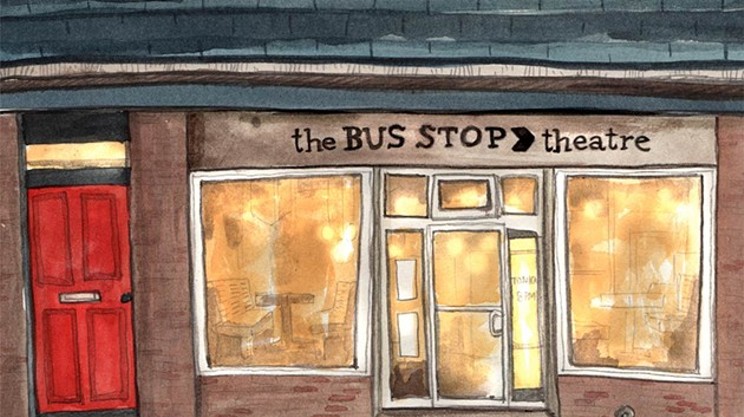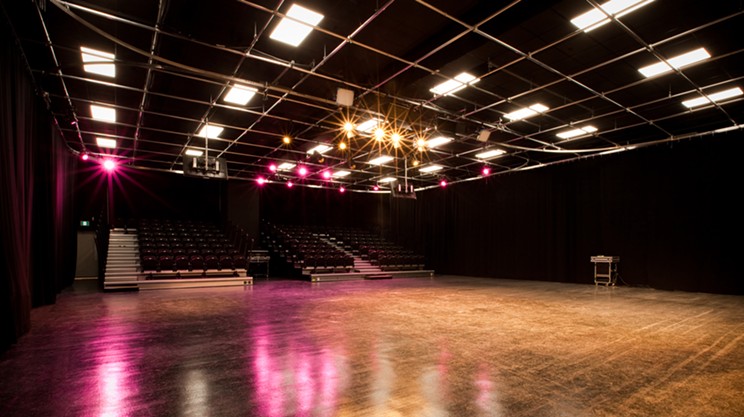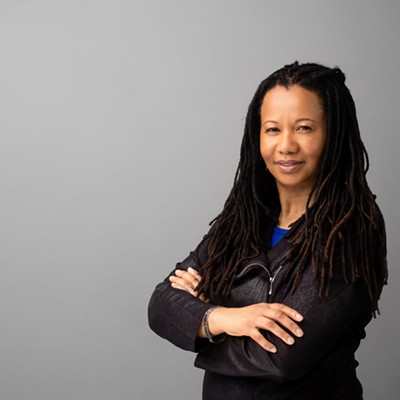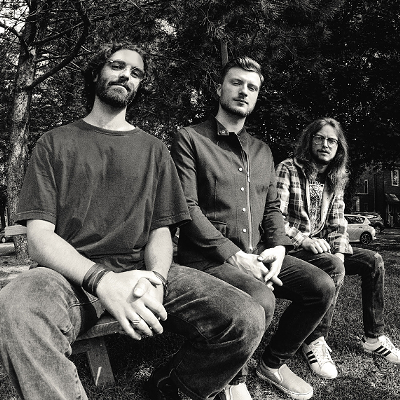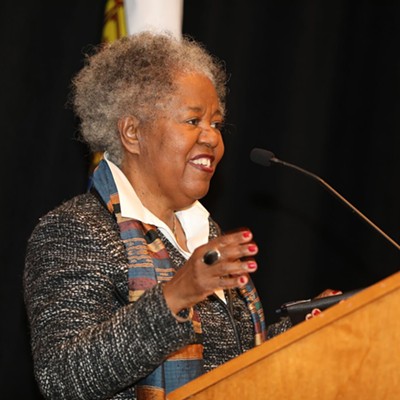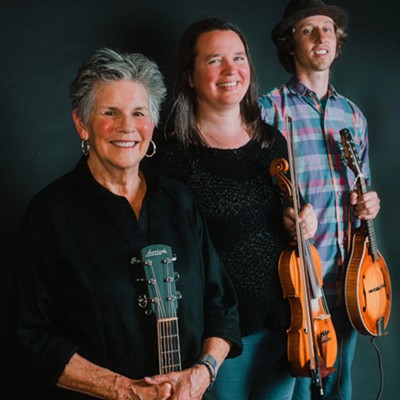Things are busy at The Bus Stop Theatre the Monday afternoon before Halifax Fringe Festival begins. A fever pitch of activity—the doorway's new ramp being tested for accessibility, a chorus of bandsaws roaring inside the lobby, ladders being carried hurriedly—crescendoes as the space prepares a soft reopening for the fest, its first spate of in-performances since COVID—and its first since finally buying its building last July.
"I won't lie, it's been a stressful little while just getting through this," says Sebastien Labelle, executive director of The Bus Stop Theatre Co-operative, sitting in the middle of the venue's main room. His voice climbs and falls as the saws next door start and stop. While enduring that stress, he says, "I've been really excited to see the changes happening to the building and to see the vision for a new Bus Stop coming to reality."
Despite the sawdust, the air in the space wants you to breathe deep—an inspired feeling spurred on by the fact that the realizing vision Labelle describes almost didn't happen.
Back in 2019, Labelle told The Coast that it was "now or never" for the future of 2203 Gottingen Street, thanks to the building going up for sale amid rapid development of the area. The temperature cranked higher when, around the same time, the north end's two other indie theatres succumbed to gentrification. But in the intervening two years, The Bus Stop held on and the city went from almost losing one of its last small-to-midsize performance venues to the space remodelling to be fully accessible. (The full renovations will be unveiled sometime in 2022, Labelle adds.)
"Prior to these renovations, The Bus Stop was known kind of by default as one of the most accessible venues in the city, but that's only because everywhere else is so inaccessible," Labelle says, explaining that the new renovations are aiming for greater inclusion by design, "paying attention to the proper standards and codes for accessibility."
The second thing Labelle is most excited about for the space's overhaul? A brand new community studio and rehearsal space for rent in the basement (yes, it'll also be accessible), which he estimates will free up the overbooked upstairs stage and its resulting "bottleneck" by giving performers an alternative place to practice.
Pre-COVID, The Bus Stop was booked 250 days out of the year's roughly 340 operating days. To put this in perspective, that means "In 2019, our last full year of operations pre-pandemic, we had turned away 69 booking requests, translating to 213 days of artistic activity lost or delayed," Labelle explains. While social distancing necessarily reduces the room's capacity from its legal load limit, The Bus Stop's foothold in the local arts ecosystem will remain pivotal: "When The Living Room on Agricola shut down, when the Waiting Room on Almon shut down, then everybody came knocking on our doors," Labelle says. "And if people don't have spaces to go to—if we're booked and they have nowhere else to go—then that really creates a pattern of atrophy in the arts sector, which is detrimental to everyone, including us."

